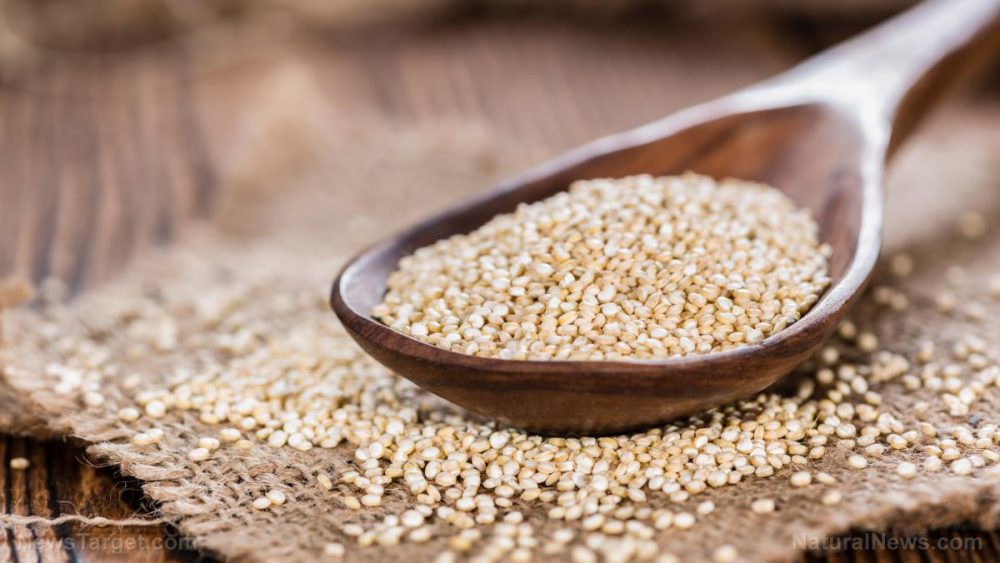
Advertisement
Substitutes for white rice are staples of a healthy diet. They come mostly in the form of whole grains, which provide complex carbohydrates like dietary fiber and other nutrients. Classic examples of white rice substitutes are barley, oats, and a nutritious, gluten-free seed called quinoa. Quinoa is considered a superfood that is on par with whole grains in terms of nutritional composition and health benefits. To help you choose the best alternative, here is a comparison between quinoa and oatmeal.
Quinoa vs. oats: nutrition
Oats (Avena sativa) is a type of grain, specifically, the edible seeds of oat grass. It is commonly consumed for breakfast in the form of either oatmeal or rolled oats. Plain oats have a bland taste and a mushy but hearty texture when cooked. It is also added to baked goods and is popular among people who are trying to lose weight.
Quinoa (Chenopodium quinoa) is a grain crop cultivated for its edible seeds. It is considered a pseudo-cereal that has been an important food source in South America since the time of the Incas. Referred to traditionally as the “mother of all grains,” quinoa has a nutty flavor and comes in three main types: red, black, and white.
Nutritional content
In terms of fat, quinoa contains less. A 100-gram serving of quinoa provides only 2 grams of fat compared with oatmeal, which provides about 7 grams. However, the fats from oatmeal are said to be healthy and include mostly omega-3 and omega-6 fatty acids — polyunsaturated fats that are good for the heart. Quinoa, on the other hand, contains monounsaturated fat (oleic acid), long-chain saturated fat (palmitic acid), and an essential fatty acid called linoleic acid.
When it comes to calories, oats offers more than thrice the calories quinoa does. Per 100 grams of quinoa, a person can get 120 calories, while the same amount of oatmeal gives 389 calories. Quinoa is recommended over oats when it comes to reducing weight as the calories from quinoa come from protein, dietary fiber, and starch. The calories from oatmeal come from sucrose, starch, and dietary fiber. (Related: Improving digestion: 11 gut-friendly foods.)
While on the subject of carbs, oatmeal provides 66 grams of carbs per 100 grams, 10 grams of which are dietary fiber. Meanwhile, a 100-gram serving of quinoa has about 21 grams of carbs, 3 grams of which are dietary fiber (mostly insoluble). When it comes to proteins, quinoa also has less: Oatmeal contains 17 grams while quinoa only has 4 grams. However, quinoa provides all the essential amino acids needed by the body, particularly lysine. Lysine is not found in most plant-based foods but can be found in oats and large quantities in quinoa.
The mineral content of quinoa and oatmeal is very similar. Both contain calcium, iron, magnesium, manganese, phosphorus, zinc, potassium, and copper. Oatmeal contains more iron, magnesium, and phosphorus than quinoa, while quinoa contains more calcium and manganese. Quinoa also contains selenium, a mineral that boosts the immune system.
In terms of vitamins, oatmeal can provide an equal amount of vitamin B6 but more thiamin (vitamin B1), riboflavin (vitamin B2), folate (vitamin B9), and niacin (vitamin B3) than quinoa. Oatmeal also contains a unique group of antioxidants known as avenanthramides and trace amounts of vitamin K. On the other hand, quinoa is a source of vitamin E, which is not present in oats.
Quinoa and oats: health benefits
While quinoa and oats slightly differ in their nutritional composition, they both share the same health benefits. Here are eight things that make quinoa and oatmeal good substitutes for white rice.
- They help in weight loss — Oats and quinoa contain protein and fiber, two nutrients that boost metabolism and increase satiety.
- They are gluten-free — Although oats naturally does not contain gluten, it can get contaminated with wheat during packaging. If you have celiac disease, make sure that the oats you buy is certified pure and gluten-free.
- They protect against heart disease — Studies show that eating oats reduces the risk of coronary heart disease, thanks to anti-inflammatory polyphenols and antioxidant avenanthramides present in it. Meanwhile, quinoa contains heart-healthy fats that help boost good cholesterol (HDL).
- They lower blood pressure — Quinoa and oats contain potassium and magnesium, which lowers blood pressure and helps blood vessels dilate, respectively.
- They improve metabolic health — Both oatmeal and quinoa are low glycemic index (GI) foods, so they help reduce blood sugar and insulin. Quinoa and oats can also lower triglycerides.
- They reduce the risk of asthma — According to studies, feeding oats to infants less than six months old decreases their risk of asthma. Consumption of quinoa also reduces the risk of childhood asthma by 50 percent.
- They lower cholesterol — The soluble fiber in quinoa can help lower bad cholesterol (LDL). Studies also show that eating oats is effective in lowering LDL and total cholesterol levels.
- They reduce cancer risk — High-fiber diets consisting of oats or quinoa can lower the risk of colorectal cancer. Quinoa also contains phytochemicals like quercetin and kaempferol, which have anticancer properties.
Oatmeal and quinoa are both good for the heart and the digestive system. You can include them in your diet as a healthy replacement for white rice. But if you have to choose, go for the food that can best provide your nutritional needs.
Sources include:
Advertisements







